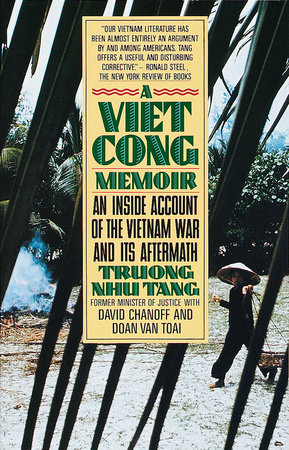Foreword
These memoirs are the story of my life as a revolutionary. There is little in them about some of the Vietnam War's events best remembered in the West: the clash of arms at Khe Sanh, the surprise offensive of Tet Mau Than, the POWs, or the last American helicopters darting from the embassy roof as Saigon fell to the North Vietnamese army. There is, I know, a great deal of interest in the military side of the war. But that was not my side. I was never a warrior and took no part in what we called the
Dau Tranh Vu Trang ("the Violence Struggle"), though in the course of things I experienced a fair share of violence myself, in prison and in the jungle under the great B-52 deluges of 1969 and 1970. My own role as a Vietcong urban organizer, then as a cabinet member, was narrowly defined, and in the nature of our struggle I kept (and was kept) away from the dimensions of confrontation that did not closely concern me.
But there was another side of the war as well, one that the Vietnamese revolutionaries considered primary—the political side. My own direct involvement, over almost two decades, was on this front. For years I lived a double (occasionally a triple) life in Saigon, proselytizing and organizing for the revolution among Saigon's upper classes and youth. After my imprisonment and eventual exchange, I lived in the jungle, at the headquarters of the Provisional Revolutionary Government (whose minister of justice I was), then—briefly—as a diplomat visiting Eastern Europe and Third World countries.
Because my view of the Vietnam War is a partial one, the picture I can draw of the revolution needs to be filled out by other accounts: from those who were involved in areas of the political arena different from mine, and of course from those whose memoirs and histories might candidly illuminate the military side of the conflict. Unfortunately, given the compulsion in present-day Vietnam to keep history the handmaiden of ideology, prospects for such memoirs and reports ever emerging from my country are not bright. Still, it is only through understanding the Vietnamese who fought on the other side that Americans will have anything like a complete portrait of a war upon which they have been reflecting so deeply-the only war they have ever lost.
The West knows, I think, extraordinarily little about the Vietcong: its plans, its difficulties—especially its inner conflicts. The circumstances of war and the great care taken to conceal its workings combined to mask the revolution in secrecy. But the Vietcong was no monolith; the motives of its members often clashed—violently. And many of us who composed its political core have felt that its goals were, in the end, subverted. The human motives, the internal struggle, the bitter resolution-these are the things I have attempted to record here.
Tr. N. T.
Paris, 1984
Copyright © 1985 by Truong Nhu Tang, David Chanoff, and Doan Van Toai. All rights reserved. No part of this excerpt may be reproduced or reprinted without permission in writing from the publisher.







